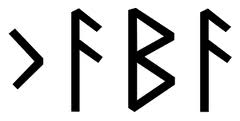Going Back to Our Roots
Posted on August 7th, 2013by Melanie
In English, German, Historic | Leave a Comment »
 Have you ever considered the origins of languages? How did they start, where did they begin, how have they changed and been influenced over the years?
Have you ever considered the origins of languages? How did they start, where did they begin, how have they changed and been influenced over the years?
Our modern day European languages belong to the Germanic family of languages which originated in Europe and include about 60 languages and dialects all originating from Proto-Germanic, which was spoken in Iron Age northern Europe. As the Germanic tribes moved southwards from northern Europe, different variations of Germanic sprang up.
Three main groups occurred: the West Germanic languages, North Germanic and East Germanic languages. The North Germanic branch consists of Danish, Swedish and Norwegian, amongst others. The East Germanic languages are now extinct. The West Germanic languages, however, are the most widely spoken of the Germanic family of languages and include the two most popular ones of English and German as well as other major languages, including Dutch and Afrikaans.
The English and German languages of today occurred due to shifts in speech patterns resulting from influences such as the Vikings and Anglo-Saxons which led to the demise of Old English grammar and the start of Middle English in the 12th century, and to the High German consonant shift which resulted in Upper German, Low Saxon and Central German strains.
Our languages are still evolving today with the integration of popular foreign words and phrases from other languages. Languages are intriguing, from their concept, to their development, their usage and their ever-changing form. So be intrigued: get back to your linguistic roots and learn a new language from the Germanic family tree!

